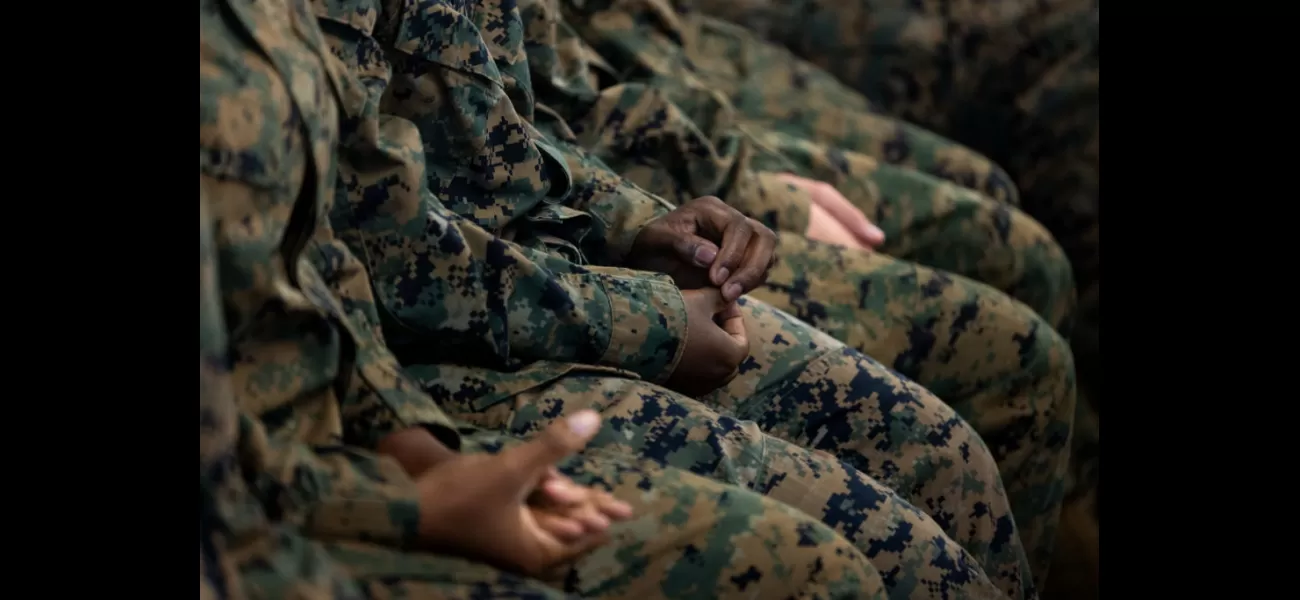Study says military personnel's race and rank have an impact on their medical care.
Doctors gave higher ranking officials 3.6% more effort and resources such as tests, imaging, prescriptions for opioids, or complex treatments.
May 17th 2024.

A recent study has uncovered concerning data regarding the correlation between race and rank in military healthcare. The research, conducted by Science and based on an analysis of over one million military ER visits, reveals that higher-ranking officers receive better resources and care compared to their lower-ranking counterparts. Furthermore, the study also highlights the impact of race on healthcare, with white physicians putting in less effort for black patients, regardless of their rank.
The researchers state that the mere fact of being black significantly reduces the level of care provided by white physicians. This finding highlights the need for ongoing efforts to address implicit biases and systemic inequities in the healthcare system. The study also found that high-ranking officers received 3.6% more effort and resources from doctors, including tests, imaging, procedures, and prescriptions for opioids or more complex treatments. As a result, these officers were 15% less likely to have a poor outcome compared to lower-ranking patients.
On the other hand, lower-ranking military members who were treated by doctors who primarily focused on higher-ranking patients were 3.4% more likely to have negative results, such as being hospitalized or having to return to the ER within 30 days. The study also revealed that the greater the gap between the doctor's rank and the patient's rank, the less effort and resources were provided by the doctor.
The authors of the study, retired Army Lt. Col. Stephen Schwab and health economist and assistant professor Manasvini Singh, acknowledged that the issue of healthcare providers favoring higher-status individuals was an open secret within hospital walls. In fact, Singh shared that doctors would receive a text message from a superior or colleague alerting them of a high-ranking officer's arrival and reminding them to provide prompt and attentive care.
Schwab also mentioned a conversation he had with a nurse midwife who disclosed that the spouses of wealthier officers were also given preferential treatment. This further highlights the pervasive nature of the issue.
The study's main focus was on the "long shadow" of power, using real data to shed light on a previously unaddressed issue. Laura Nimmon, an expert from the University of British Columbia, acknowledged the study's significance and emphasized the need to address status, authority, and class bias in medical education and healthcare systems. She stated that efforts must be made to understand the impact of power and how it can potentially corrupt physicians, who are often seen as altruistic.
The authors also mention the potential implications of their findings on the lives of civilians. They draw comparisons to why black students perform better under the instruction of black teachers and why landlords tend to evict vulnerable tenants regardless of their ability to pay. This highlights the larger issue of systemic biases and their impact on marginalized communities.
In related news, veteran Haley McClain Hill has recently secured $150K from "Shark Tank" for her military clothing brand. Her success serves as a reminder of the resilience and determination of military members, despite facing challenges such as biased healthcare.
The researchers state that the mere fact of being black significantly reduces the level of care provided by white physicians. This finding highlights the need for ongoing efforts to address implicit biases and systemic inequities in the healthcare system. The study also found that high-ranking officers received 3.6% more effort and resources from doctors, including tests, imaging, procedures, and prescriptions for opioids or more complex treatments. As a result, these officers were 15% less likely to have a poor outcome compared to lower-ranking patients.
On the other hand, lower-ranking military members who were treated by doctors who primarily focused on higher-ranking patients were 3.4% more likely to have negative results, such as being hospitalized or having to return to the ER within 30 days. The study also revealed that the greater the gap between the doctor's rank and the patient's rank, the less effort and resources were provided by the doctor.
The authors of the study, retired Army Lt. Col. Stephen Schwab and health economist and assistant professor Manasvini Singh, acknowledged that the issue of healthcare providers favoring higher-status individuals was an open secret within hospital walls. In fact, Singh shared that doctors would receive a text message from a superior or colleague alerting them of a high-ranking officer's arrival and reminding them to provide prompt and attentive care.
Schwab also mentioned a conversation he had with a nurse midwife who disclosed that the spouses of wealthier officers were also given preferential treatment. This further highlights the pervasive nature of the issue.
The study's main focus was on the "long shadow" of power, using real data to shed light on a previously unaddressed issue. Laura Nimmon, an expert from the University of British Columbia, acknowledged the study's significance and emphasized the need to address status, authority, and class bias in medical education and healthcare systems. She stated that efforts must be made to understand the impact of power and how it can potentially corrupt physicians, who are often seen as altruistic.
The authors also mention the potential implications of their findings on the lives of civilians. They draw comparisons to why black students perform better under the instruction of black teachers and why landlords tend to evict vulnerable tenants regardless of their ability to pay. This highlights the larger issue of systemic biases and their impact on marginalized communities.
In related news, veteran Haley McClain Hill has recently secured $150K from "Shark Tank" for her military clothing brand. Her success serves as a reminder of the resilience and determination of military members, despite facing challenges such as biased healthcare.
[This article has been trending online recently and has been generated with AI. Your feed is customized.]
[Generative AI is experimental.]
0
0
Submit Comment





